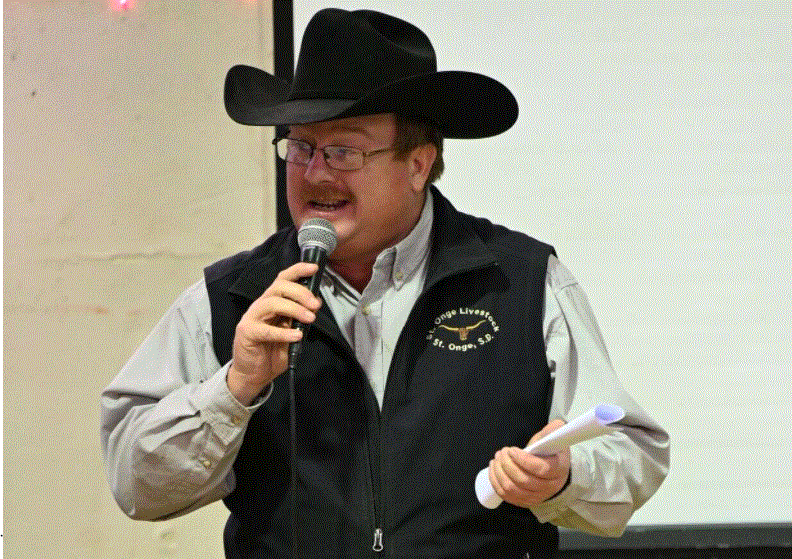Justin Tupper - Vice President - US Cattlemen’s Association
The gavel hit the podium and I looked up to hear Chairwoman Debbie Stabenow greet the seated panelists, small crowd, and attentive journalists that had gathered in the grand hearing room. “Good afternoon, I call this hearing of the U.S. Senate Committee on Agriculture, Nutrition and Forestry to order,” she said over the microphone.
Sitting before me were Senators representing states with predominantly urban districts and those whose constituents were vastly outnumbered by the cattle their states raised. Senators with both R’s and D’s after their name. Senators like Cindy Hyde-Smith of Missouri, who grew up in a livestock sale barn, and Senators like Cory Booker, who does not eat meat but is a strong believer in a sovereign food system.
The lights in that hearing room were hot, and the glare of the cameras reflected back onto all of us at that hearing room table. We couldn’t see most of the audience who were watching the livestream from home, but I felt their presence in the room that day.
- I felt the exhaustion of “maybe just one more year”, as a ranching family gathers around the kitchen table to weigh their decision to keep a generational operation going in the face of insurmountable challenges.
- I felt the frustration of powering up the phone only to see that cattle are still trading under what they’re worth that week.
- I felt the anger of going to the grocery store and seeing beef labeled “Product of the U.S.A.” in someone’s cart, knowing damn well that the label is misrepresenting what’s inside.
- I felt the hopelessness of another so-called “Black Swan” event that only seems to occur when the market is trending upwards.
- I felt the hunger of a nation that lost the ability to feed its own people, as an increasingly consolidated marketplace earns record profits for its corporate shareholders – but at the expense of the rest of America.
On that day, my voice served as the voice of cattle producers across the U.S. experiencing these feelings. It wasn’t me representing my own beliefs and interests up there, but the beliefs and interests of an entire group of independent producers – the U.S. Cattlemen’s Association.
Since 2015, USCA has testified at all major livestock hearings held by the Senate Agriculture Committee. Our voice is backed up by the lived experiences of our members. The USCA Marketing and Competition Committee meets regularly to push forward solutions that expand transparency and increase true price discovery in the cattle marketplace.
We’ve worked with the CME Group and the Commodity Futures Trading Commission, of which I serve as a member of the Agriculture Advisory Committee, to add additional deliverable supply capacity to the Live Cattle Futures Contract. We’ve successfully pressed USDA to publish additional data collected under the Livestock Mandatory Reporting program that provide important marketplace insights. And if we hadn’t been at the table, we wouldn’t be discussing the importance of truthful labeling on both domestic beef products and petri-dish protein.
My testimony on Capitol Hill sparked conversations among industry leaders, Congressional staff, mainstream media outlets, and more. A few weeks later, a “leading modern media company” as they call themselves, or Vox, released a mini docuseries titled, How 4 companies control the beef industry. My family was featured in this short film, and the production team did an incredible job of breaking down the complexities of our industry for a mostly consumer audience. I encourage you to go watch it – nearly 3 million others already have.
On November 9, 2021, Senators Chuck Grassley (R-IA), Deb Fischer (R-NE), Jon Tester (D-MT), and Ron Wyden (D-OR) announced the introduction of the Cattle Price Discovery and Transparency Act. The bill combines elements of the “50-14” or spot market bill, and the Cattle Market Transparency Act. If passed into law, it would be the first time ever that we’d mandate how the packers purchase cattle. It would also be the first major influential piece of cattle market reform legislation since the so-called “Black Swan” event in Holcomb, Kansas.
As I’m writing this, the North American Meat Institute released an opinion editorial opposing the bill and other much needed reforms to the cattle marketplace being advanced by the Biden-Harris Administration, citing “unintended consequences.”
We have seen this game play before by them. “Unintended consequences” is an ominous phrase meant to scare us back into complacency. Well, I must say that the intended consequence of doing nothing is putting the entire U.S. meat supply chain at risk by concentrating its wealth and power in the hands of just four major players.
And contrary to their talking points, this sort of meaningful change is what grassroots producers have been working towards for decades. President Biden is not using the meat industry as a scapegoat – he, and Congressional leaders, heard the calls from producers and consumers for a better U.S. meat supply chain and is investing in solutions.
There is an incredibly short window of opportunity here. U.S. cattle producers have momentum in the countryside, in Congress, and in the White House. This is not the time to waver, hesitate, or cry “unintended consequences.” This is the time for action.














